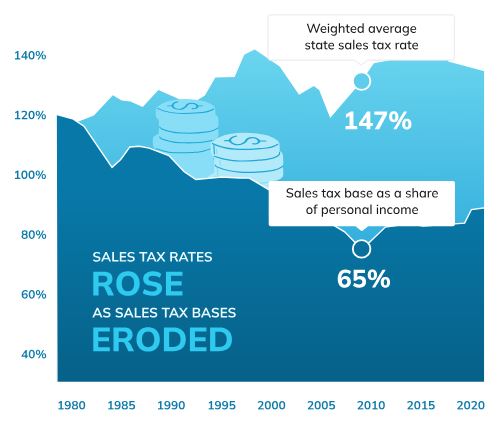Avalara, Inc., a leading provider of cloud-based tax compliance automation for businesses of all sizes, today released its annual Avalara Tax Changes report for 2025. The report covers tax changes and trends across the U.S. and internationally, as well as specific changes in key industries, including retail, manufacturing, software, communications, energy, lodging, and beverage alcohol. Key findings in the report point to nascent state-by-state efforts to alleviate the burden of tax compliance related to economic nexus laws; the role of AI in state tax audits; and signs of increasing adoption of electronic invoicing globally.
Notable highlights from the Avalara Tax Changes 2025 report include:
Simplifying sales tax in home rule states
This could be the year we see meaningful simplification in home rule states like Colorado. For the uninitiated, home rule describes states where cities, counties, and other local government entities have authority to administer local sales tax, including auditing businesses, creating their own forms, and defining terms differently from the state – prompting greater sales tax complexity for businesses selling into those states. A handful of home rule states − Colorado, Alabama, Louisiana, Arizona, and Alaska – are making moves toward simplification. Still, businesses selling into home rule states continue to face an onerous tax compliance burden.

“There’s a lot of uncertainty around what will happen with economic nexus in home rule jurisdictions,” says David Lingerfelt, Senior Director of Indirect Tax at Avalara. “If a second challenge over remote sales tax ever makes it to the Supreme Court of the United States, it will probably be centered on home rule.”
Rollout of global e-invoicing mandates continues
With the continued digitization of tax compliance processes, businesses are more frequently required to submit electronic versions of audit files, invoices, credit notes, debit notes, and payment receipt data to tax authorities. E-invoicing solutions represent a new way of reporting tax obligations and are destined to play a central role in compliance strategy for businesses of all sizes across segments and industries. According to a recent Billentis report, e-invoicing is entering a “tornado” – a phase of rapid and widespread adoption of new technology and its consequent changes in the market.
“Despite various delays to the rollout of mandates around the world, it remains a matter of time before e-invoicing is not only implemented, but mandated, worldwide,” said Alex Baulf, VP of E-Invoicing and Live Reporting at Avalara. It remains imperative for businesses to follow developments in the compliance landscape and equip themselves with e-invoicing and real-time reporting solutions as soon as possible.”
States look to AI to boost audit efforts
The use of AI technologies is popping up just about everywhere, including at the IRS, and now in state tax departments. The IRS, in response to ongoing staffing issues, has said it will use AI and advanced analytics to help select partnerships for income tax audits. States facing the same personnel shortfalls are using AI to “multiply the power of their audit teams.” To wit, New York’s State Department of Taxation and Finance has used AI to increase audits exponentially with fewer auditors. The Empire State is reportedly “sending out hundreds of thousands of AI-generated letters looking for revenue,” and the strategy is yielding results.
According to Scott Peterson, VP of U.S. Tax Policy at Avalara, “States rarely comment on how they choose someone to audit or how they conduct audits. But it’s very safe to say they have long used tools to help in both and AI should be a natural fit.”
IRS finalizes staggered threshold reductions for form 1099-K reporting
Gig workers – including online marketplace sellers, digital content creators and influencers, short-term rental hosts, delivery service workers, freelancers, and others – who collect payments via Venmo, PayPal, or similar third-party settlement platforms have been on alert for several years since Congress voted to reduce the 1099-K threshold from $20,000 to $600, thus requiring those settlement platforms to report significantly more transactions to the IRS. Though the lowered threshold was delayed at the end of 2023, in November 2024, the IRS announced a three-year phase-in approach to the $600 threshold, beginning with a $5000 threshold this tax year. Participants in the gig economy are scrambling to understand and comply with the new rules.
Read the Avalara Tax Changes 2025 report here.
Thanks for reading CPA Practice Advisor!
Subscribe Already registered? Log In
Need more information? Read the FAQs
Tags: sales taxes, Taxes




